EDITOR'S NOTE
Since the November 2016 elections, the dying gasps of US exceptionalism has meant the intensification of attacks on the lives and movement of people from the Arab world. The travel ban constitutes a US policy to sanction the very people that previous administrations as well as the current one have bombed. As borders close, the number of refugees fleeing the horrors of war in Syria, Yemen, and Iraq increases. In this tautology, the new US administration has resoundingly adopted policies of blaming the victims of decades of US war and hegemony. Within this constellation, the production of knowledge as well as higher education more broadly are more crucial than ever. In an era when the status of the fact has eroded at rapid speed, scholars and educators are on the frontlines of guarding the need for empirically grounded and theoretically sound research and scholarship. It is in this spirit that we offer our most recent issue of Arab Studies Journal.
Ghenwa Hayek sheds new light on the notion of the “ordinary” and provides an innovative view on contemporary Beirut by tracing a young generation of novelists. Geoffrey P. Levin traces the trajectory of the Organization of Arab Students in the United States as it shifted from mainstream Arab nationalism supportive of US-Arab ties to anti-imperial radicalism. We are also honored to include a special section on the state in Lebanon. The past few years have featured renewed elite and popular mobilizations around particular state institutions and services: waste management, municipal elections, taxes, and more. The existence, nature, and role of al-dawla (the state) has been a persistent feature of public discourses about contemporary politics in Lebanon. In this special section, we feature a number of historical, contemporary, and theoretical considerations of the Lebanese state. Jamil Mouawad and Hannes Baumann, this special section’s co-editors, introduce the articles by considering the need for and stakes of taking more seriously this ephemeral and nebulous network of institutions and individuals. The section features three articles, each making a unique and productive intervention into the broader scholarship on Lebanon as well as that of the state. Complementing the special section is a critical assortment of book reviews of recent works on Lebanese history, contemporary politics, and their implications for the state in Lebanon.
For more information visit Jadaliyya:
Arab Studies Journal Announces Spring 2017 Issue: Editor's Note and Table of Contents
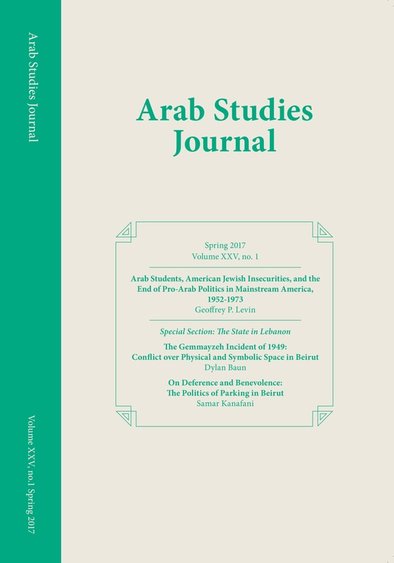
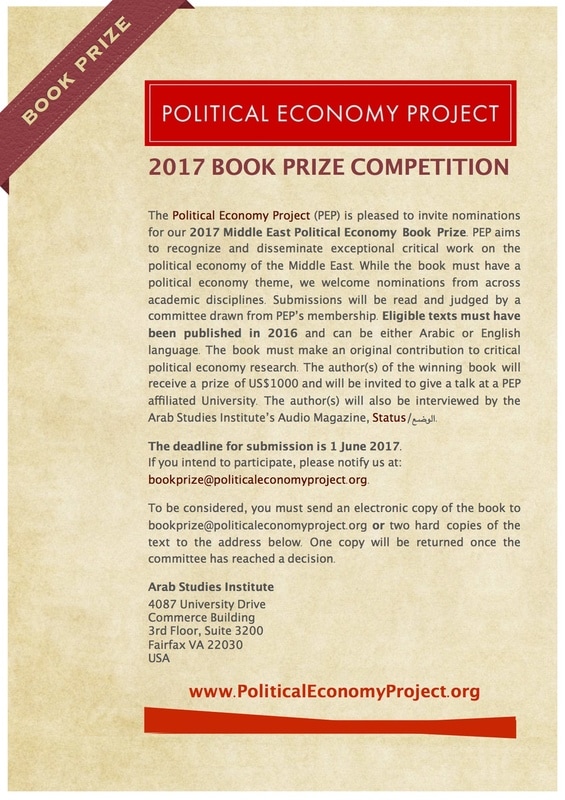
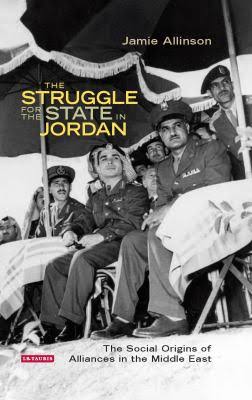
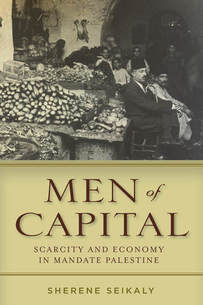
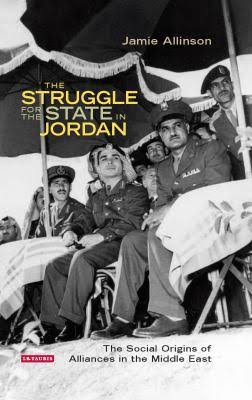
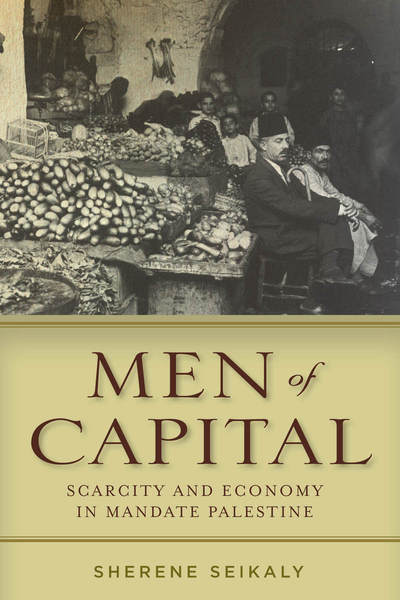
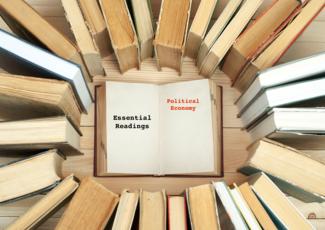


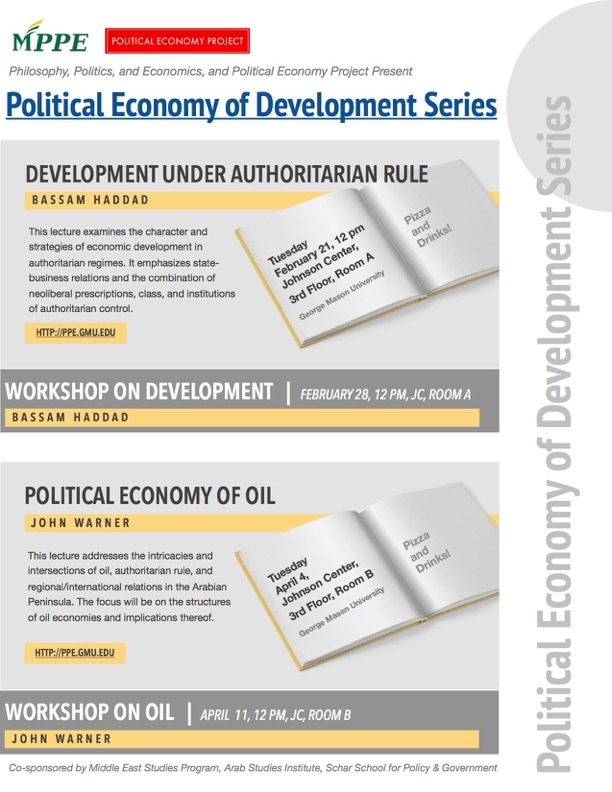
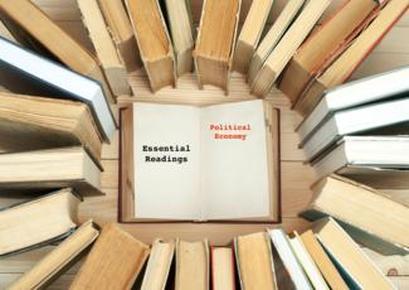
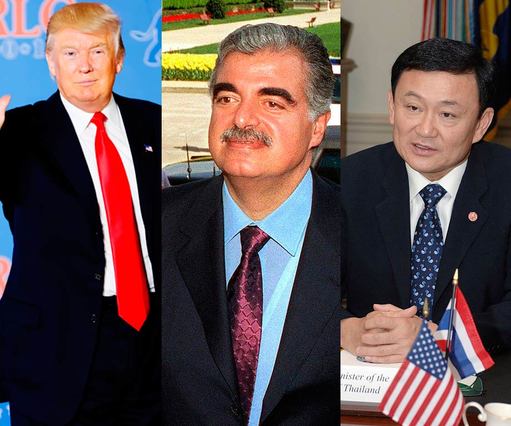
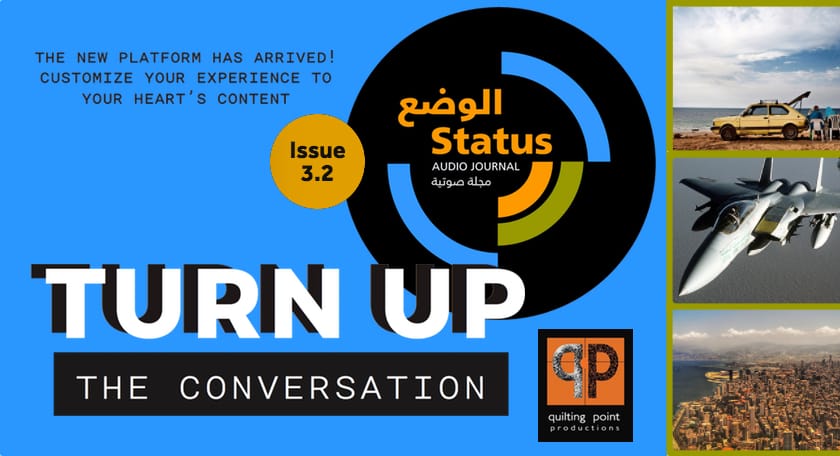
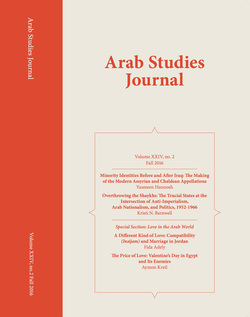
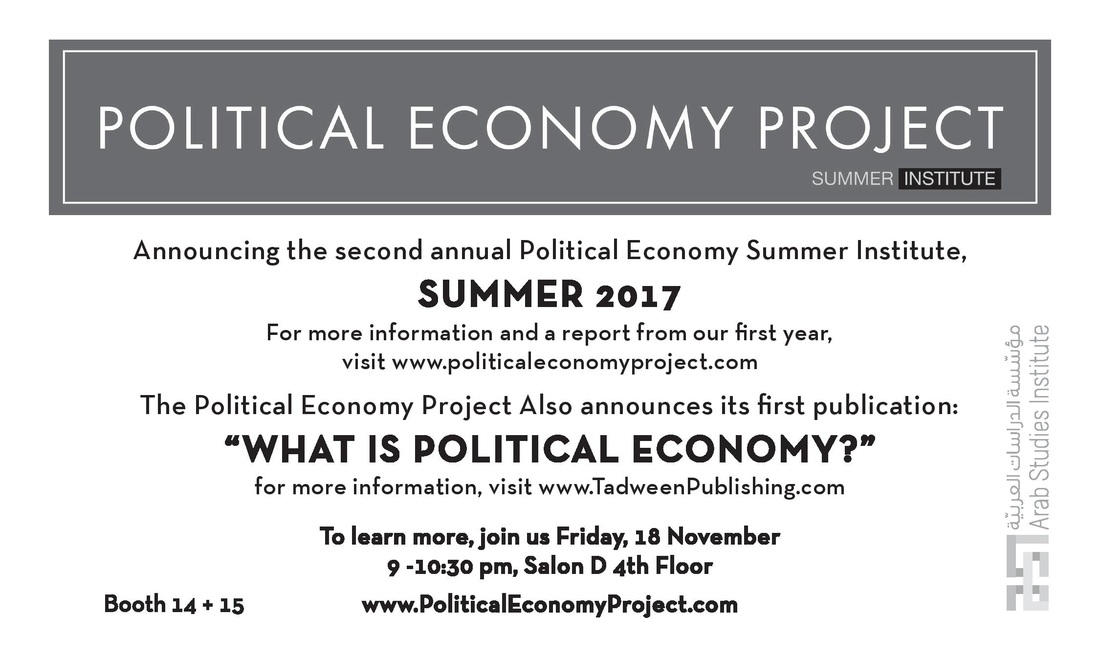
 RSS Feed
RSS Feed

